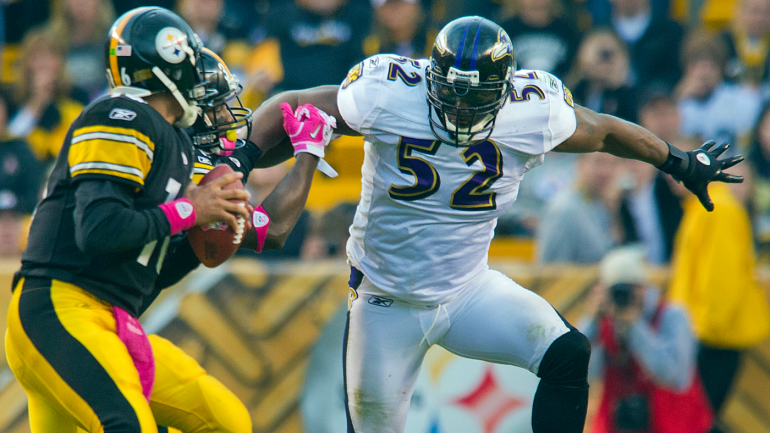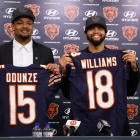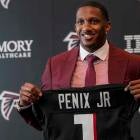
Ray Lewis offered an unexpected response when reminded of a 37-0 loss to the Pittsburgh Steelers during his second season as the Baltimore Ravens' middle linebacker.
He laughed.
Lewis, whose 17-year career with the Ravens has been immortalized in the Pro Football Hall of Fame, was typically on the losing end of his team's matchups against the Steelers during the early stages of his career. In Week 6 of the 1997 season, Lewis' Ravens built a 21-0 lead against the Steelers at home before losing, 42-34. Five weeks later, they suffered a 37-0 loss in Pittsburgh in front a nationally televised audience. That season, the Steelers were on their way to a third AFC title appearance in four years. The Ravens, a 4-12 outfit the previous season, were a pedestrian 6-9-1.
Amidst the losing, Lewis saw something in Pittsburgh that he wanted to instill into his team.
"When I came to Baltimore in 1996, we had no team, no identity," Lewis told CBS Sports shortly before his Hall of Fame induction. "We had nothing. There was nothing to really represent. The excitement was there, the logo was there, but nothing else.
"I remember going to Pittsburgh, and I'm looking at this culture. And I'm coming from 'The U' in Miami, and this culture [in Pittsburgh] is absolutely amazing. It's a legendary culture. The fan base and loyalty and commitment."
Slowly but surely, a winning culture started to develop in Baltimore. After another down year in 1998, the Ravens clawed to a .500 record in 1999. The Ravens win their first game in Pittsburgh that year, a 31-24 victory that saw backup running back Priest Holmes gash Pittsburgh's defense to the tune of 130 yards and a score on 18 carries.
Baltimore's next game in Pittsburgh, in Week 1 of the 2000 season, is when Lewis says the rivalry between the Steelers and Ravens really began. Down 16-0 with just under 10 minutes remaining, the Steelers had a chance to get back into the game after driving to the Ravens' 1-yard-line. That's when the culture that Lewis had been building in Baltimore finally rose to the surface.
"Pittsburgh had eight chances to score," Lewis said. "If you wanna see old school football and see the switch of power of us saying, 'We have arrived.' They had eight chances. They did not get in. We beat the Steelers, 16-0, and that changed the rivalry. They knew that a new bully was in town."
Two months later, the Steelers, 4-3 after an 0-3 start, knew they would be in for a fight when they arrived in Baltimore for the rematch. In a defensive dominated game (something that has become a trademark of Steelers-Ravens matchups), Pittsburgh overcame a 6-0 deficit after scoring the game's only touchdown, a 45-yard touchdown pass from Kordell Stewart to Hines Ward. While the Steelers escaped with a 9-6 victory, they surely knew that Baltimore-Pittsburgh games would never be the same.
Pittsburgh's win over Baltimore that day would be last loss for the 2000 Ravens, who won their last 11 games that included a 34-7 win over the Giants in Super Bowl XXXV. The next season, Pittsburgh dethroned Baltimore in the playoffs to raise the level of the rivalry. Since 2001, the Steelers and Ravens have won a combine 15 division titles and three Vince Lombardi Trophies. They've met four times in the postseason that includes the Steelers' victory over the Ravens in the 2008 AFC Championship Game.
Lewis retired with two Super Bowl rings, the same number of titles the Steelers won during that same era. Lewis presided over some of the best defenses of his era, with Pittsburgh's defense being one of the few units that rivaled the one in Baltimore. Lewis starred on a defense that also included Hall of Famers in safeties Rod Woodson and Ed Reed. Pittsburgh's defense featured Hall of Fame safety Troy Polamalu and linebacker James Harrison, the 2008 NFL Defensive Player of the Year. While fans of both teams can argue which unit was better, what cannot be disputed was how similar both defenses were as it related to their dominance over opposing offenses. It took a few years, but in the end, the team Lewis finished with was strikingly similar to the franchise he wanted to mimic 17 years earlier.
"As much as I didn't like them as a competitor," Lewis said of the Steelers, "the amount of respect for them that I have is amazing."






















